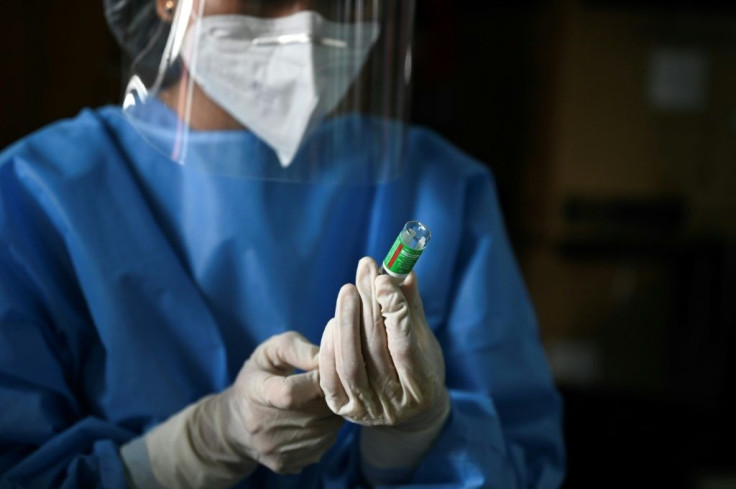Breakthrough COVID-19 Cases Could Lead To Long-Term Symptoms: Study
KEY POINTS
- Some suffered lingering symptoms, such as fatigue and brain fog
- The workers who tested positive for COVID-19 did not spread the virus to other people
- A separate study suggested that long-COVID could be diagnosed by taking a look at a patient's eyes
People experiencing breakthrough infections of COVID-19 may also experience “long COVID,” according to a study published Wednesday.
Researchers at the Sheba Medical Center in Israel studied 1,497 fully vaccinated health care workers for four months after they were administered the Pfizer-BioNTech vaccine. Thirty-nine of them tested positive for the novel coronavirus.
Of those who were diagnosed with COVID-19, seven suffered from lingering symptoms that lasted at least six weeks, including fatigue, brain fog, muscle pain, and loss of taste and smell, according to the study published in The New England Journal of Medicine.
"It's really disturbing," Dr. Gili Regev-Yochay, director of the infection, prevention and control unit with the Sheba Medical Center and an author of the study, said, according to NPR. "If this is what we're going to see with all of the even mildly symptomatic infections that we're seeing now, it's definitely worrisome."
The researchers noted that none of the 39 health care workers who were diagnosed with COVID-19 passed the virus to other people.
Regev-Yochay said additional research is needed to confirm the results of the study. The researchers also noted that their study was conducted when the Alpha variant, first identified in the United Kingdom, accounted for most cases in Israel.
In a separate study, researchers suggested that patients who are at risk for long COVID could be diagnosed by taking a look at their eyes. According to the report published in the British Journal of Ophthalmology, patients who experienced neurological symptoms, such as loss of taste and smell, may display nerve fiber loss and an increase in immune cells on the surface of their eyes.
"We believe corneal confocal microscopy ... will allow clinicians to make the diagnosis of long COVID with greater confidence," coauthor Dr. Rayaz Malik of Weill Cornell Medicine Qatar said, according to Reuters.
Malik noted that their study is observational and involved a small number of participants. These factors, he said, mean they could not establish a cause.
“We show that patients with long COVID have evidence of small nerve fiber damage which relates to the severity of long COVID and neuropathic as well as musculoskeletal symptoms. Corneal confocal microscopy may have clinical utility as a rapid objective ophthalmic test to evaluate patients with long COVID,” he said, according to WSPA.

© Copyright IBTimes 2025. All rights reserved.






















